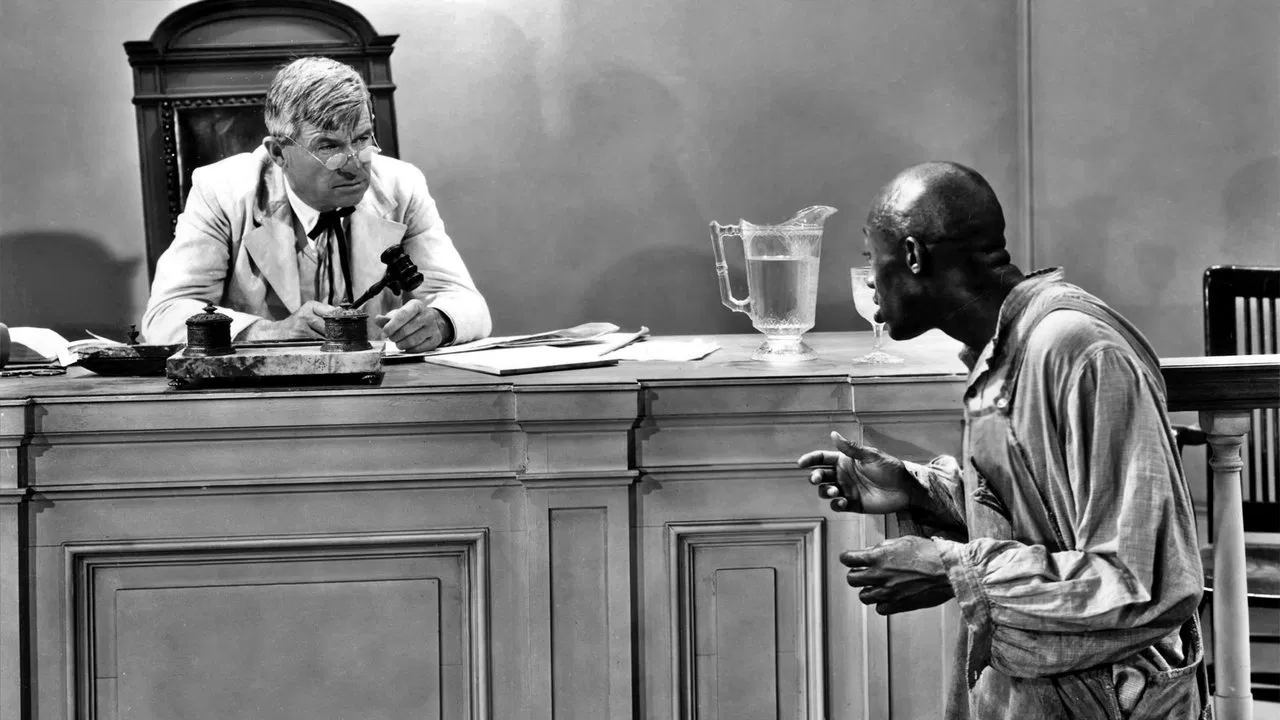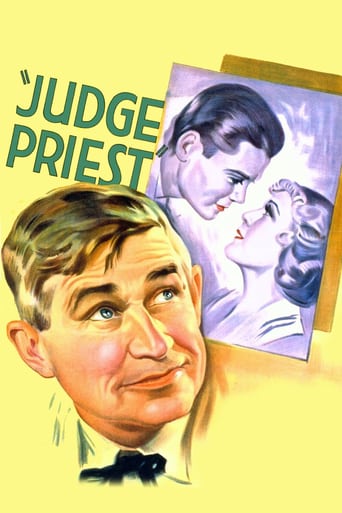

Episodic comedy from John Ford that is a showcase for Will Rogers to do his homespun wisdom routine that made him famous. He plays the title character, a judge who helps a young couple being kept apart by meddling parents and helps a blacksmith charged with assault. It's a bit of a mixed bag. Rogers is good and he gets fine support from Henry B. Walthall, David Landau, Berton Churchill, and Charley Grapewin. But there's very little meat on the bone here. It's a slow-moving picture that seems content to shoot for the occasional amused grin rather than try for many laughs. Add to that the cringeworthy performance of Stepin Fetchit and you have a film whose appeal is pretty narrow.
... View MoreI am a great lover of old cinema, but this movie is that I see it too theatrical. From the actors to the staging. We all know how it will end from the beginning. It has a too slow pace which makes it harder to carry. It lasts only eighty minutes and yet it has become long. For some time it is stuck and stops moving. If it is true that John Ford is noticed when there are many actors, all placed and studied so they do not bother. The staging is very much his own and the general plans too, Orson Welles had not yet arrived, to teach everyone to make beautiful, well-composed and cinematographically flat plans. The problem is that with that southern slowness does not stop me from motivating
... View MoreIt is a charming movie and Will Rogers is wonderful in his role as Judge Priest, but I noticed the young girl, Ellie May Gillespie played by Anita Louise, was never said to have parents who were married. According to the plot, her biological father was proved to be a Confederate hero thus making her acceptable for the judges' nephew to marry. Where is the logic in that? She was still a bastard and the boy's aunt was right. The aunt, as you might expect, was made a mockery of. It puts me in mind of Gone With the Wind. In it, Scarlett O'Hara was hard-hearted and calculating. Rhett Butler loved her but then became disgusted with her evil ways and the fact she loved another man, a married man. But Rhett's "friend", a prostitute, had a heart of gold. She was lifted up in this 1939 Academy Award Winner. Yes, here again we see movies even this far back were trying to change the Christian values of Americans and others. They were quite successful, unfortunately.
... View MoreWell the film may be all 'Aw shucks' and corn pone but it held an odd and entertaining fascination for me. I'd never seen Will Rogers in any type of vehicle before but knew that his homespun folksiness and insight into humanity were legendary. No doubt many from today's vantage point will find the picture's treatment of blacks to be condescending and offensive. However one would do well to consider it within the context of it's era, depicting an even earlier time in our country's history during the 1890's. As Judge Priest's (Rogers) maid Dilsey, Hattie McDaniel is a delight to behold, merrily singing away as she performs her chores while offering a unique counterpoint to the dimwitted and subservient Jeff Poindexter. Yes, Stepin Fetchit can be painful to watch at times, and every time I've seen him he's been a stereotype, but the man obviously had something on the ball to become the first black millionaire in the entertainment industry.The main story revolves around an unobtrusively quiet citizen of the town who's brought up on charges of stabbing the local barber (Frank Melton). Quite honestly, Flem Talley's laugh alone was enough to drive me up a wall, and though I wouldn't say it about someone in real life, the character in this picture literally had it coming. Through gradual exposition we learn that Bob Gillis (David Landau) is the father of a local town beauty (Anita Louise as Ellie May Gillespie) being romanced by the Judge's nephew (Tom Brown), and also a hero during the Civil War for the Confederacy.At times lively and raucous and at others quite serious and somber (Henry Walthall's testimony as Reverend Ashby Brand), "Judge Priest" is a genuine gem coming out of the early 1930's, a time when film makers were still finding their way out of the silent era. It deserves a modest recommendation for it's folksy and humorous approach, and if there's one line that I had to replay three times to be sure I heard it right, it was the one uttered by the old codger offering the Judge a swig of his home made corn whiskey - "You can smell the feet of the boy that ploughed it!" I'm really going to have to reconsider my choice of spirits in the future.
... View More